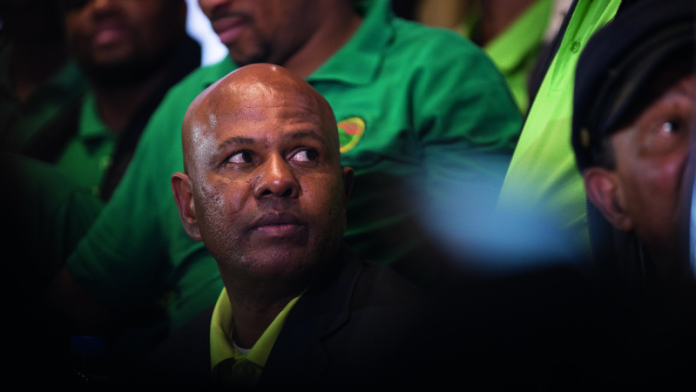
SHARES in Sibanye-Stillwater were under pressure today following a company announcement it had raised R1.7bn by means of a share placement – cash it would use to pay down debt amid a strike at its South African gold mines.
The stock closed just over 17% weaker on the Johannesburg Stock Exchange. On a year-to-date basis, shares in the company are 40% higher owing to improved prices for palladium and rhodium and a deterioration in the value of the rand to the dollar, although the rand has regained ground in the past month.
The company sold new 108.9 million shares, equal to just under 5% of its issued shares, for R15.50/share, raising gross proceeds of R1.7bn. The issue price was at a 2% discount to the volume weighted average share price on April 9.
On April 8, announcing it was to begin the book-build process, Sibanye-Stillwater said its gold mining operations had been heavily affected by a strike involving members of the Association of Mineworkers & Construction Union (AMCU). It said it would use the cash to cut debt especially as wage negotiations in the platinum sector fall due in May or June.
“It is pleasing to note the significant oversubscription of the transaction which is testament to the strong market support for our company,” said Neal Froneman, CEO of Sibanye-Stillwater in a statement following announcement of the successful book-build. He added the firm was confident about its plans to deleverage the balance sheet.
Analysts were largely sanguine on the book-build as well. “The equity raise, in our view, was unexpected,” said analysts for Goldman Sachs in a note. “However, it does help the company de-lever and positions it well in case the PGM [platinum group metal] wage negotiations result in a strike like [that] at the gold operations,” the bank added.
Adrian Hammond, an analyst for Standard Bank Group Securities, said the decision to raise cash was prudent given the gold strike was taking longer than expected to resolve. He also referred to other headwinds identified by Sibanye-Stillwater in a first quarter update, also issued on April 8, including the delay in refined metals to Anglo American Platinum following the adoption of a roll refining agreement in terms of Sibanye-Stillwater’s takeover of the Rustenburg Mines.
“We do not view this decision as negative for fundamentals, but rather as maintaining a hard line with AMCU and as a precautionary measure,” he said.
Nonetheless, investors fled the share whilst in comparison, other gold shares fluttered down gently on the day (AngloGold Ashanti -2% weaker). Hammond said the impact of the AMCU strike on the gold mines should not be estimated given the high fixed cost nature of the gold mines. He described Sibanye-Stillwater’s current financial year as a “non-event” and estimated the gold business would have a R1.5bn negative contribution to EBITDA.
Hammond also said Sibanye-Stillwater was being overly cautious regarding the prospect of a prolonged wage related strike in the platinum mines given possible gold sector exhaustion following AMCU’s four-month strike. But Joseph Mathunjwa, president of AMCU, was a presence on the headlines and airwaves in Johannesburg yesterday.
This followed comments he made at a PGM investment conference in which he declared AMCU would never bow to Sibanye-Stillwater and controversially compared Froneman to the white imperialism of rand lord Cecil John Rhodes.
“Neal Froneman and his Mafia are the last battalion of exploiters. If you look where they are coming from it’s Cecil John Rhodes and Charles Rudd from Gold Fields.”
(Rudd famously negotiated the Rudd Concession on mineral exploration from Matabele chief Lobengula in 1888 which Rhodes subsequently used to justify an invasion of the country which was subsequently named after him as Rhodesia but became Zimbabwe in 1980.)
Mathunjwa continued: “When they unbundled at Gold Fields, Froneman came up with Sibanye. He never left the learnings of Cecil Rhodes. He was groomed and brought up under those circumstances.”









